Accelerating the HIV response in Eastern Europe and Central Asia
- 249 views
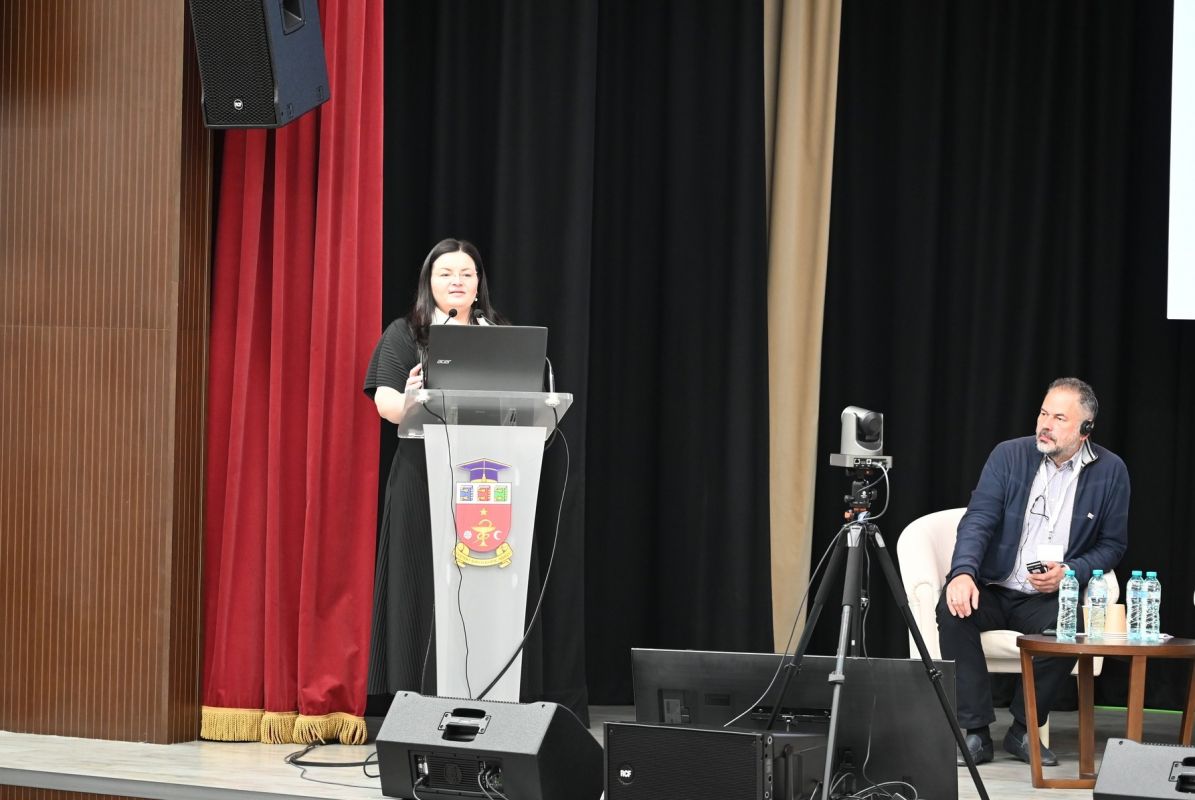
For the first time, international and local experts met in Chisinau to discuss important aspects in the fight against HIV AIDS at the "Uniting science and community to accelerate the HIV response in Eastern Europe and Central Asia (EECA)" symposium. The forum was organized on November 11, 2024, by the Association for the prevention and control of infections in partnership with the International AIDS Society (IAS), the Union for Equity and Health, in collaboration with Nicolae Testemitanu State University of Medicine and Pharmacy of the Republic of Moldova.
Ala Iatco, moderator of the event, president of the Union for Equity and Health, mentioned that the symposium represented an opportunity to reaffirm the common commitments undertaken by the medical system together with the academic environment and the entire community in the fight against HIV/AIDS. "Science and practice must be put at the service of the community, and this requires effective collaboration between all parties. It is important to understand that we are talking about people, and solutions do not depend only on specialists, but also on the involvement of the whole society. We need to be closer to those who face these problems and collaborate effectively to prevent the disease and improve their health", stressed Ala Iatco.
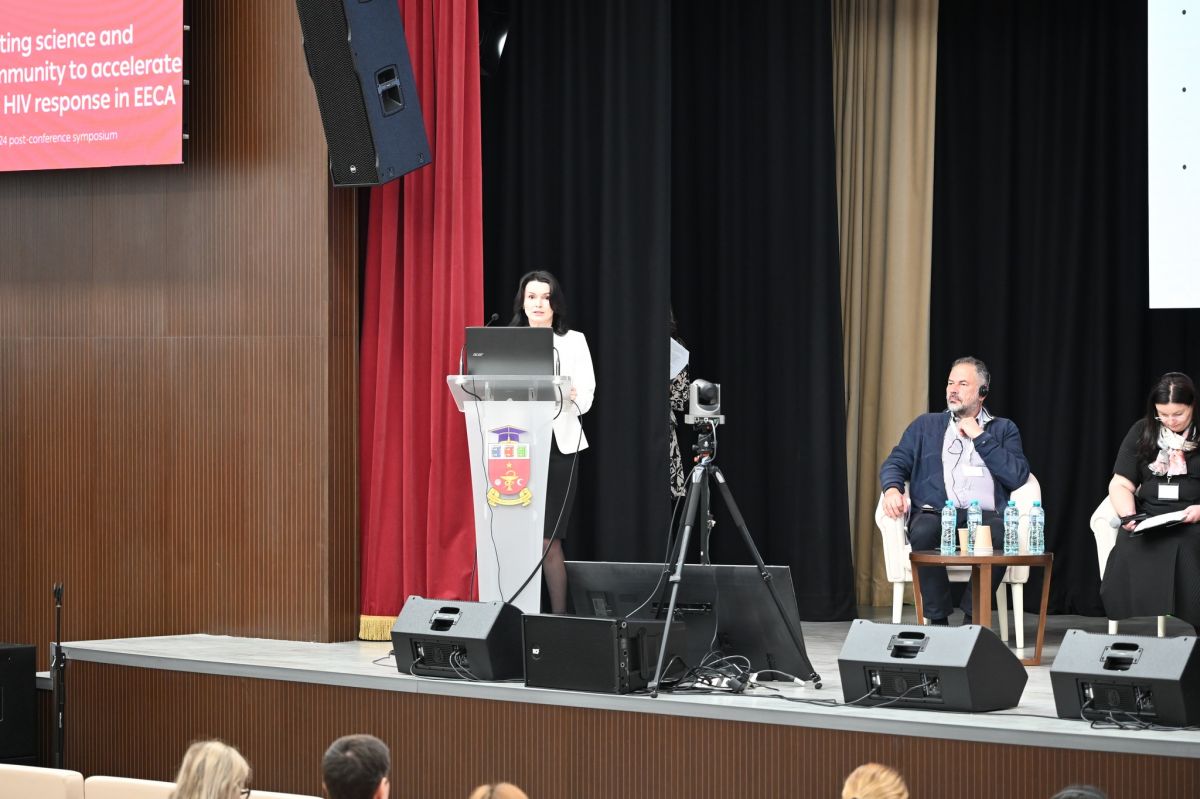
According to the data of the Ministry of Health of the Republic of Moldova, HIV infection remains a major public health problem both globally and in our country. Worldwide, it is estimated that more than 42 million people with HIV infection have lost their lives to date. At the end of 2023, approximately 40 million people were living with HIV, 65% of them on the African continent, and 630,000 people had died from the infection. In the Republic of Moldova, the total number of HIV cases reached approximately 17 thousand, with 928 new cases reported. However, the implementation of public health policies and international programs to combat HIV infection had a significant impact. Thus, between 2010-2023, the prevalence of infection decreased by 43%, and the number of deaths caused by HIV decreased by 29%.
"One of the achievements recorded at the country level is the approval of the National Program for the prevention and control of HIV/AIDS and sexually transmitted infections for the period 2022-2025, in which strategic priorities in the field are established. Among the measures implemented is the use of rapid tests that have contributed to increasing accessibility and reducing the time needed to confirm the diagnosis to just one day, compared to a week previously. Also, the decentralization of antiretroviral treatment was achieved, and now there are 23 centers where free treatment is offered", said Angela Paraschiv, secretary of state at the Ministry of Health.
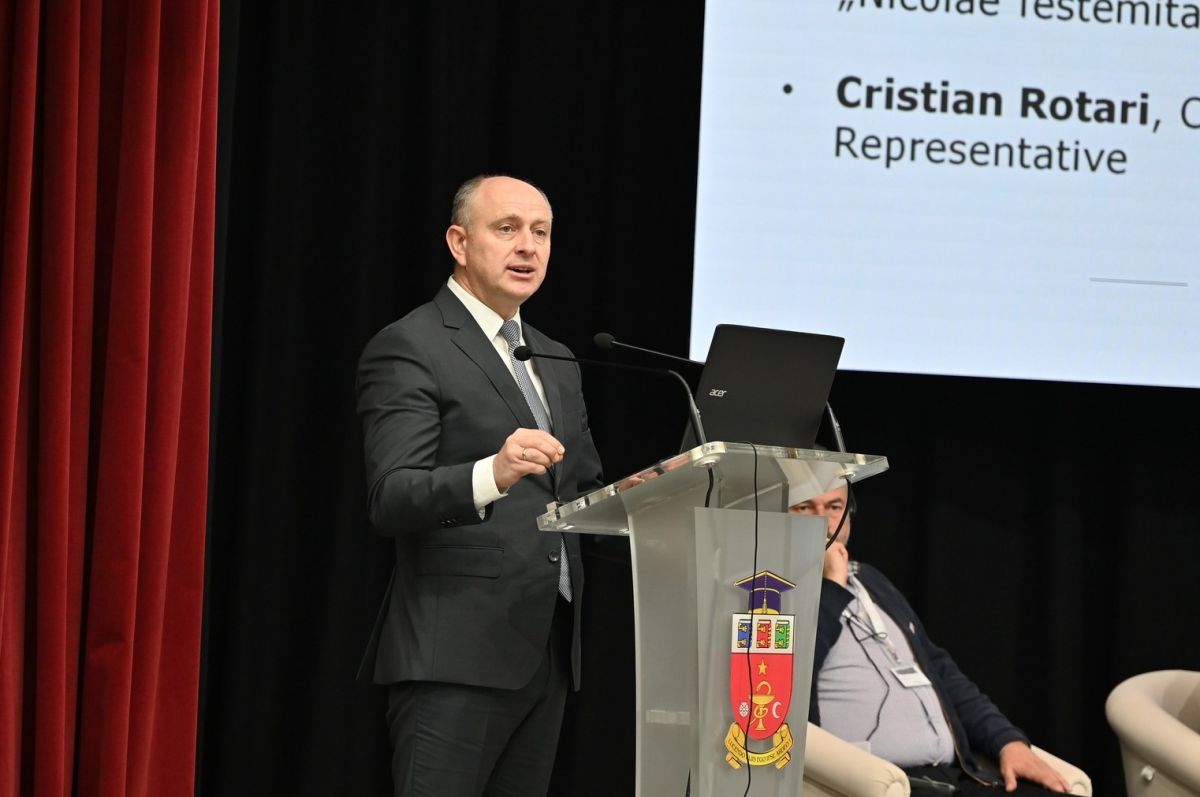
Associate Professor Marcel Abras, vice-rector for the management of clinical activity at Nicolae Testemitanu University, emphasized the progress made in the treatment and care of patients with HIV/AIDS, in the last ten years. "If in the past, patients were often considered to have received a 'death sentence', being isolated and lacking social inclusion, nowadays there is a more optimistic trend. Although the fight against HIV/AIDS has not yet been fully won, patients can now live longer and more active lives, provided they apply the available antiretroviral treatments, which are safe and free of charge", the vice-rector pointed out.
According to Cristian Rotari, representative of the key community affected by HIV in the Republic of Moldova (which includes the LGBT community, drug users, sex workers and infected people), the involvement of all members of the community - from office workers to field workers and those which deal with policy development and implementation – is important for achieving public health objectives. He expressed gratitude for everyone's efforts and urged for continuity in their work, stressing that activities must be based on respect and acceptance of fundamental human rights.
During the symposium, Andrei Klepikov, IAS representative, emphasized the importance of applying scientific research in the Republic of Moldova and in the region.
The event program included information and training sessions on reducing HIV-related stigma and discrimination, and activities such as: transferring the latest scientific evidence presented in Berlin, Germany, at the 25th International AIDS Conference, and discussing its relevance in local context; the promotion of science, the exchange of good practices and innovative approaches in order to achieve the objectives of prevention, identification, treatment and care in the context of HIV/AIDS; the presentation of scientific evidence, the adoption and implementation of new approaches in achieving the objectives of the National Program for the prevention and control of HIV/AIDS infection and sexually transmitted infections for the years 2022-2025.
The event brought together professionals from various fields, including scientists, health professionals and members of civil society from Ukraine, Romania, Albania, Serbia, Belarus, Lithuania, Great Britain, Denmark, Georgia, Kazakhstan, Kyrgyzstan, USA, South Africa and Thailand.
Preluarea informației de pe site-ul USMF „Nicolae Testemițanu” poate fi efectuată doar cu indicarea obligatorie a sursei și a linkului direct accesat pe www.usmf.md.

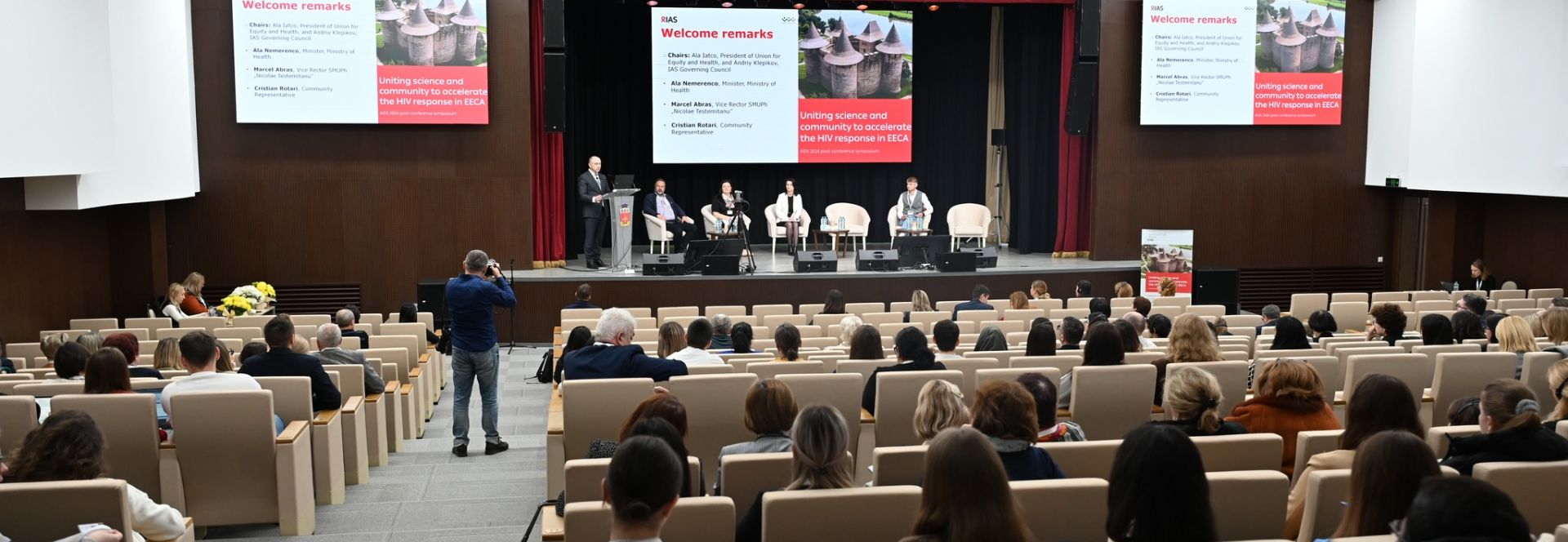









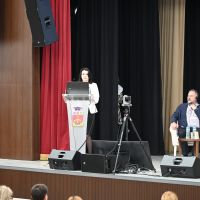
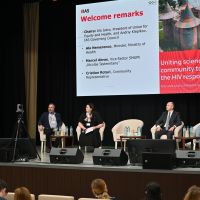
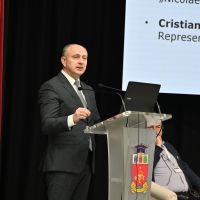
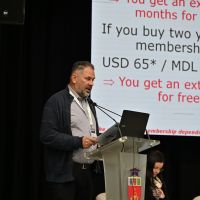
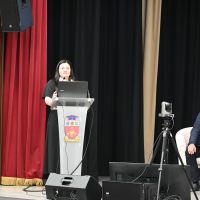
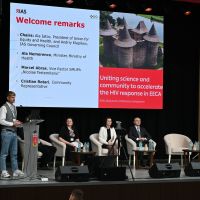
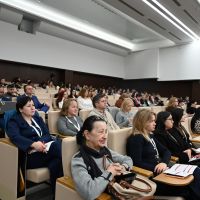
Comentarii